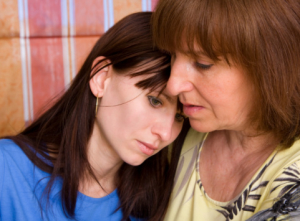 Having a teenager can be the most difficult part of parenting. Adding depression to the mix can often make parenting your teen much more difficult. Adolescent depression can often be viewed as teenage angst, which leaves your teen untreated and not feeling like him/herself.
Having a teenager can be the most difficult part of parenting. Adding depression to the mix can often make parenting your teen much more difficult. Adolescent depression can often be viewed as teenage angst, which leaves your teen untreated and not feeling like him/herself.
Why Do Teens Get Depressed?
There is a great deal of pressure on teens that adults seem to forget. Teenagers may develop feelings of inadequacy or worthlessness over grades, school performance, and social status with their peers. Teens also deal with their sexual orientation and family issues. Teens may also become depressed as a result of bullying or as a result of a tragic event.
What are the Signs of Depression in Teens?
If you’ve seen a noticeable change in your teen’s behavior, he/she may be dealing with depression. Your teen may show a lack of motivation and withdrawing from friends, family, and activities. Your teen may exhibit one or more of the following symptoms of depression:
• Excessive sleeping
• Change in eating habits
• Complaining of headache, stomach ache, lower back pain, fatigue
• Difficulty concentrating
• Irresponsible behavior
• Memory loss
• Rebellious behavior
• Sudden decrease in grades
• Sadness, anxiety, or a feeling of hopelessness
• Withdrawal from friends
It’s important to note that not all teens with depression will exhibit all of these symptoms.
How is Depression in Teens Diagnosed?
Not unlike diagnosing depression in adults, your teen will be interviewed by a psychiatrist who will determine whether or not your teen has symptoms of depression. The psychiatrist will also look for signs of other mental illness, such as anxiety, bipolar disorder or psychosis.
How is Depression in Teens Treated?
There are a variety of ways to treat depression, including psychotherapy and medication. The psychiatrist will work with you and your teen to determine the best course of action after a proper diagnosis has been provided.
Medications may be used to help your teen deal with his/her depression. It’s important that you and the mental health provider closely monitor these medications. If you’re concerned about your teen’s mental health, do not hesitate in seeking treatment. Contact your pediatrician for recommendations on mental health providers.
If you have questions or concerns, discuss them with the mental health provider.
Dr. Amanda Itzkoff is trained in Psychotherapy and Psychopharmacology in New York, and can help you move beyond the frequent frustrations or limitations that may be caused by adolescent depression. If you are looking for more information on adolescent depression, please feel free to contact us via email. To schedule a consultation, please contact our office at 917-609-4990. .
